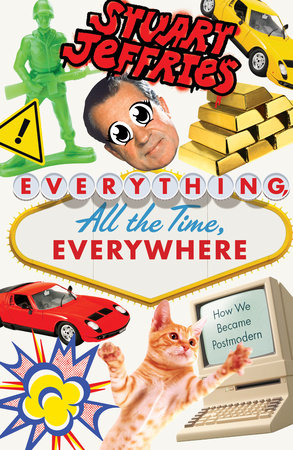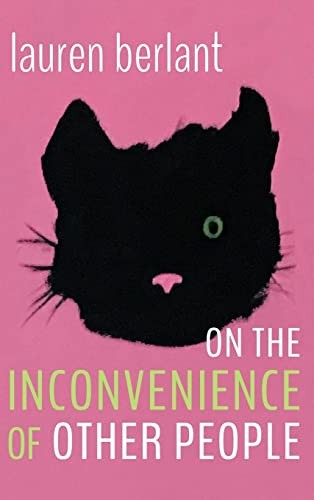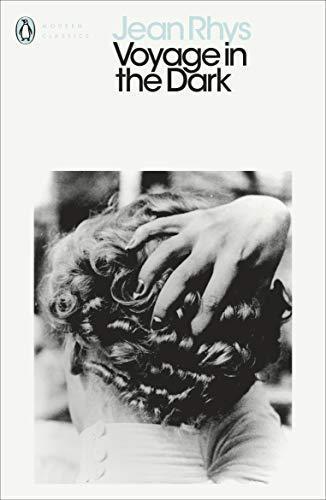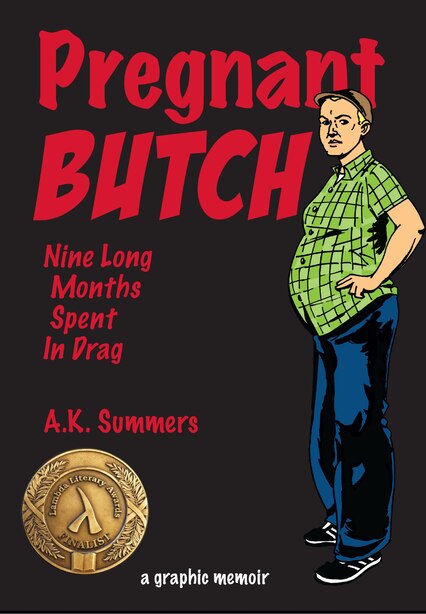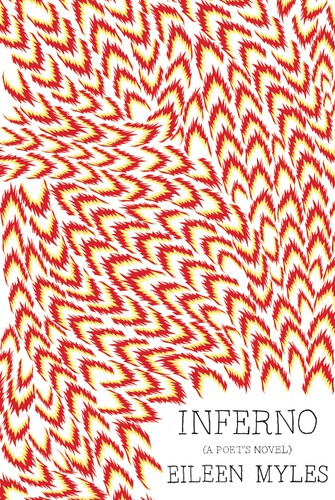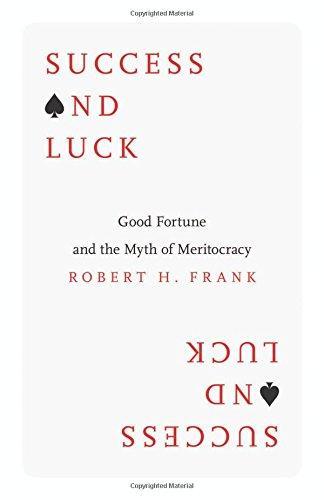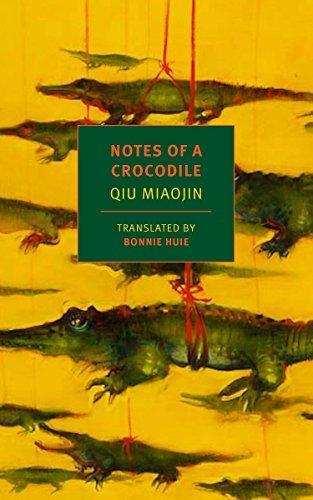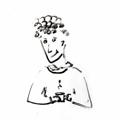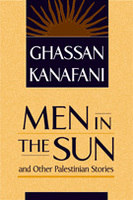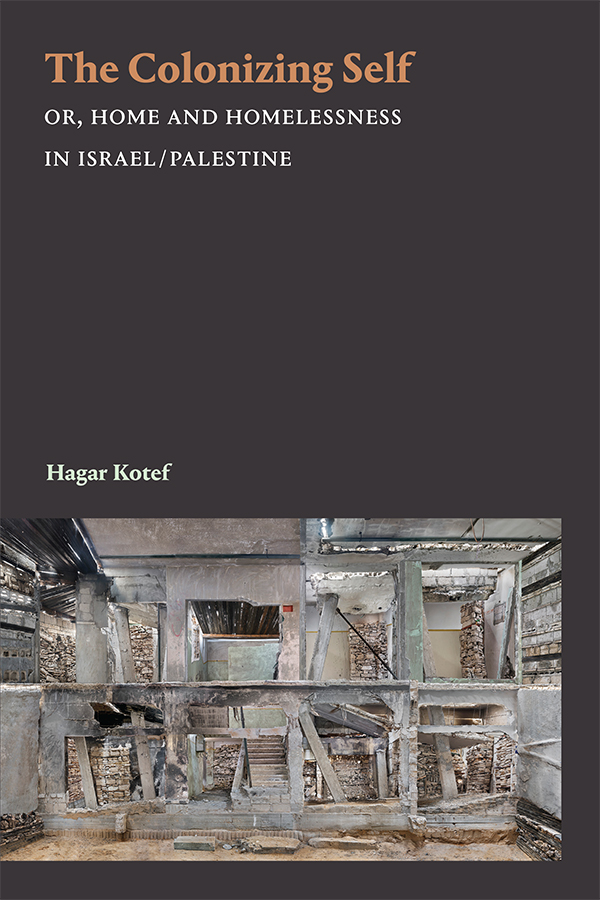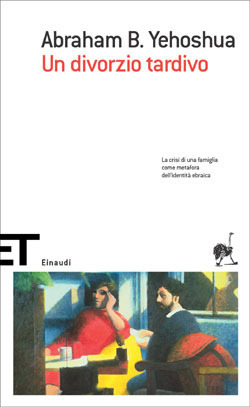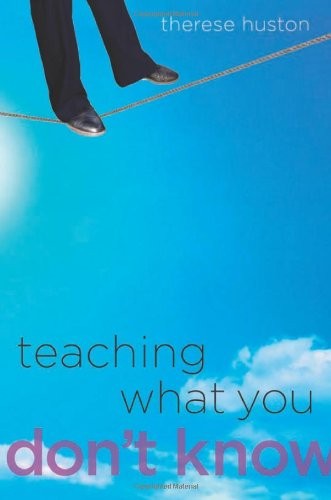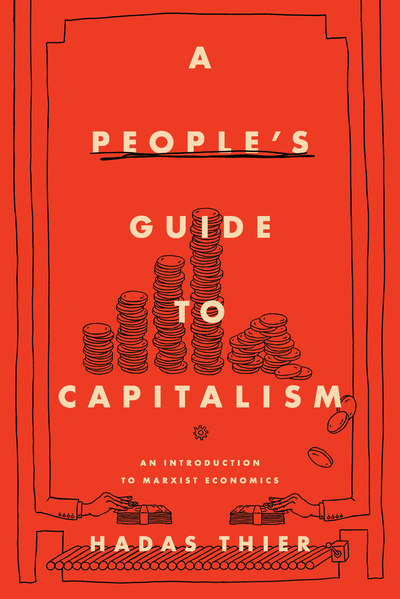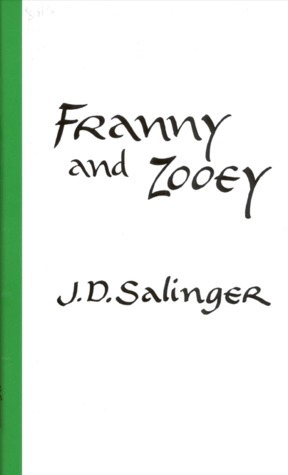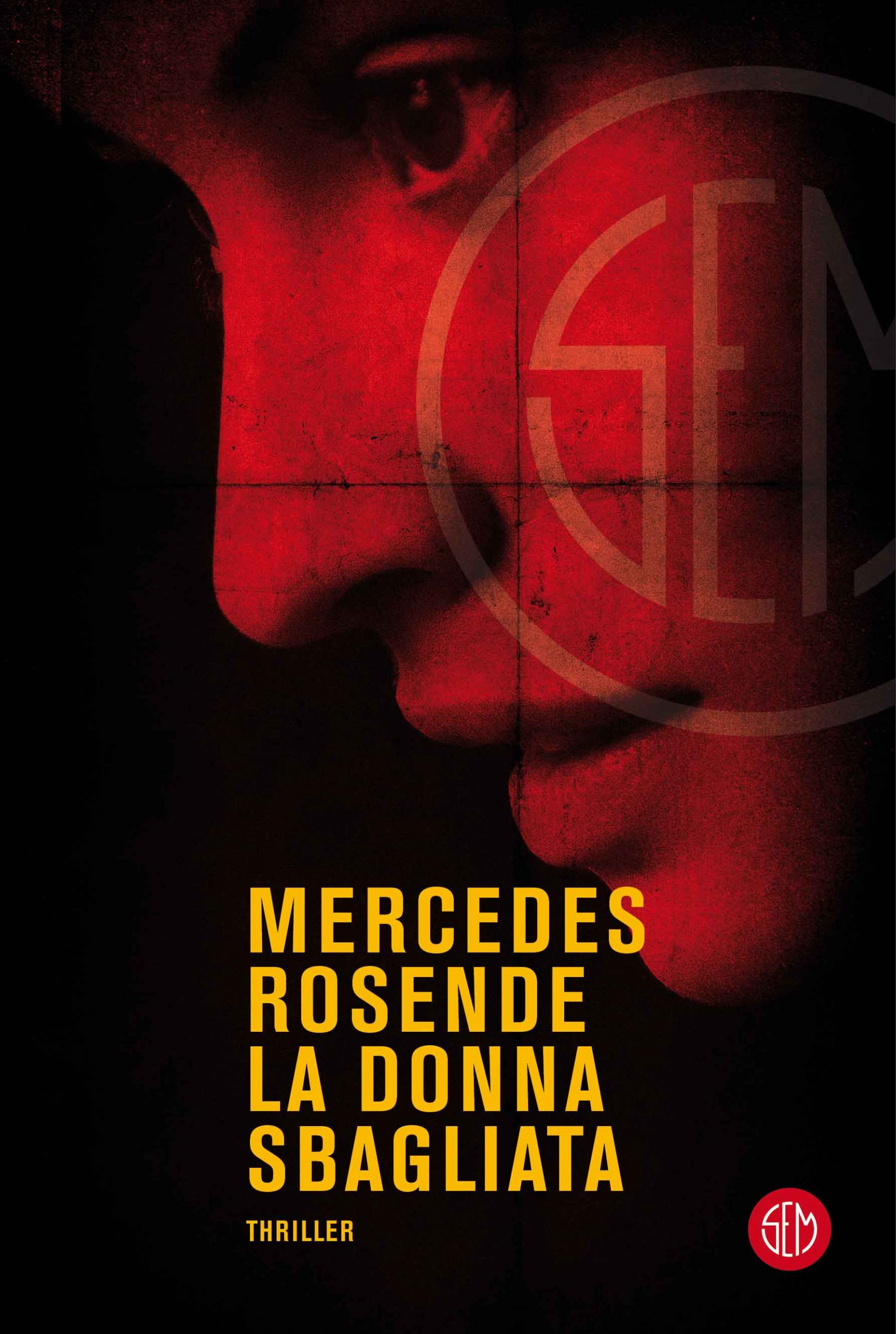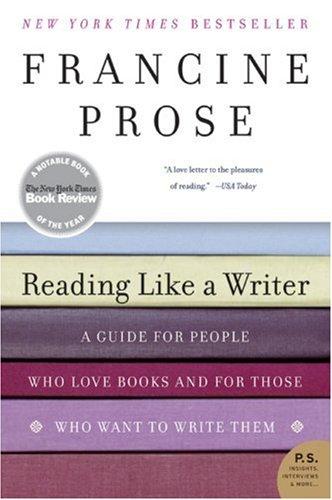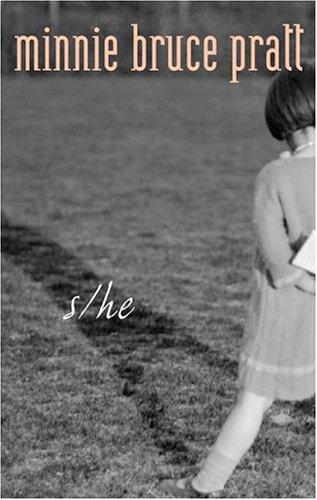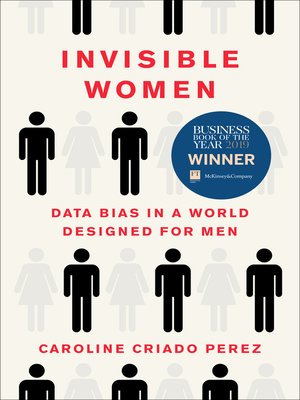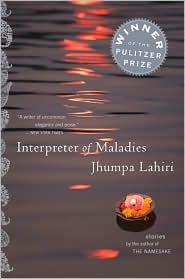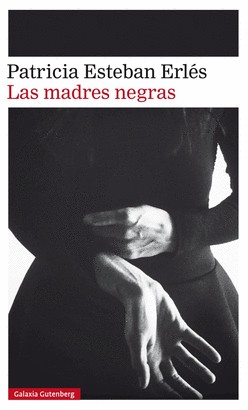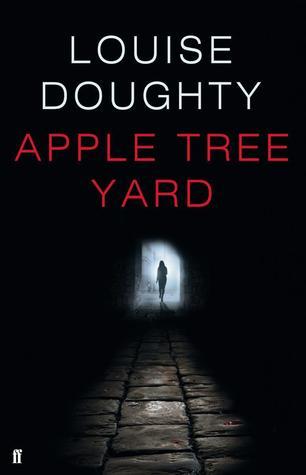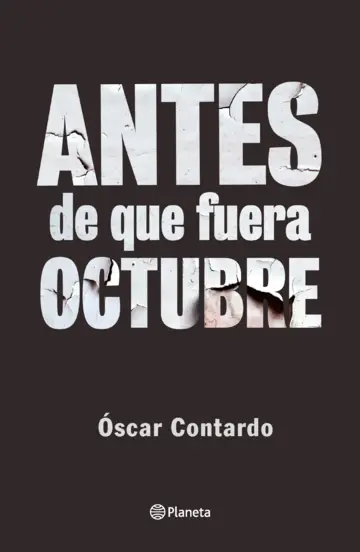This was a great book - it explains Marxist theorist in a clear and compelling fashion, using a lot of examples from recent and not so recent history. But it isn't simplistic, or even simple: it actually makes for quite a challenging read. The tone of a 'call to arms' may irritate or alienate someone who doesn't already identifies with the left, but then again, maybe this book is not written for them.
CHAPTER ONE: The Birth of Capital
This chapter defines capitalism and puts it into historical context. Marx defined capitalism as a social relation of production. This means that, as Thier puts it, “that profits are not the result of good accounting or the inventive ideas of the superrich, but are instead the outcome of an exploitative relationship between two classes of people: bosses and workers”.
The standard right-wing narrative about wealth inequalities is that rich people are rich because they earned it. A popular variation on this plot is that rich people are rich because their forefathers earned it. Instead, the book presents a sketch of the violent process of enclosures in Europe, whereby the ruling classes took by force land and resources that were previously held in common. (this part covers much of the same ground as Trespassing). Thus, while under feudalism lords used explicit force to coerce people into working and/or paying them tributes, “capitalism created a new underclass of wageworkers—a class of people theoretically free to work where and how they pleased, but who would in practice be compelled—by economic necessity—to produce a surplus for someone else nonetheless”.
Here is the link between capitalism and liberalism: capitalism is based on the fact that workers, no longer in control of the means of production (the tools and resources necessary to make things), need employment; but also on the illusion that they are free individuals, choosing to work and selling their labour on a more or less fair market. Quoting directly from Marx: “For the transformation of money into capital, the owner of money must find the free worker available on the commodity-market; and this worker must be free in the double sense that as a free individual he can dispose of his labor-power as his own commodity, and that, on the other hand, he has no other commodity for sale, i.e. he is rid of them, he is free of all the objects needed for the realization of his labor-power.”
Key points:
- capitalism is a social relation of production, whereby capitalists exploit workers who need employment to survive
- it isn't natural or eternal: it is barely a couple of centuries old, and developed through a violent process of land enclosures
CHAPTER TWO: The Labour Theory of Value
This second chapter illustrates the labour theory of value (LToV), which is at the core of Marxist economic thinking. It also defined many key concepts that one is bound to encounter over and over again when reading about the economy.
The LToV is an explanation for how wealth is created. Marx did not invent the LToV, which, in fact, was widely popular in his times, even among theorists of capitalism such as Adam-Smith. He did, however, draw out its political implications, i.e. the fact that it is workers, not capitalists, who produce wealth.
For Marx, commodities are the fundamental basic units of wealth under capitalism ““The wealth of societies in which the capitalist mode of production prevails appears as an ‘immense collection of commodities’; the individual commodity appears as its elementary form.”. So what are commodities?
A commodity can be defined as "something that was made through human labor, satisfies a demand, and is produced for the purpose of exchange”. Already we see that there are two aspects here: a commodity must satisfy a demand, i.e. have a use value, and it must be made for the purpose of trade, i.e. have an exchange value. We also see that labour is what creates commodities, and thus wealth.
More specifically, according to the LToV, “a commodity’s [exchange] value in relation to other commodities is determined by how much labor has gone into producing it” or, to be precise, by the socially-necessary labour time, i.e. how long it takes, on average, to produce a comparable commodity (under capitalism, being an especially slow carpenter doesn't warrant charging more for the same chairs).
Granted, the exchange-value of a commodity must cover for other costs: raw materials, tools and technologies. But ultimately these are also produced through labour, and can therefore be computed as labour-time. So, to return to the chair example, its socially-necessary labour time includes not only the hours needed to make it, but also those needed to extract the wood, make the saw, nails and hammer, etc. In other words, exchange-value is an approximated representation of socially-necessary labour time.
It is a representation because labour creates value, but is not itself value. To be value, it needs to be objectified, to be 'congealed' into a commodity and considered in the abstract. Actual labour-time is too diverse and specific to work as a measure of exchange: how many hours down a mine are worth how many hours kneading bread or performing heart surgeries? For this reason, Marx talks of human-labour-in-the-abstact to refer to “labor as a general power abstracted from all its specific form”.
A final important point made in this chapter (and further developed in the next one) is that exchange-value is not the same as price. Indeed, prices (or rather, money) hides the relation between things and people (workers), it “conceals the true nature of value, so that when you go to the supermarket, you don’t think you’re trading an equivalent amount of your “congealed mass of labor” with someone else’s”. So, money reframes social relations (between people) as economic relations (between money and commodities ). Or, as Marx has it “It is nothing but the definite social relation between men themselves which assumes here, for them, the fantastic form of a relation between things.”
Marginalism: Nowadays, mainstream economists tend to explain the production of wealth through the theory of marginalism. This theory effectively assumes that prices are determined by a balancing act between the interests of sellers and buyers. Thier gives the following, clarifying example. A thirsty person is looking to buy a bottle of water. Let's say that she's willing to pay up to 3 dollars for that bottle, because she really can do with the water. After that first purchase, however, she will not pay the same for a second bottle, and even less for the tenth one. On the other hand, the water company needs more and more money to produce more and more bottles: purchasing more raw materials, machinery and space. So, if we are plotting supply and demand on two curves, the first will be raising, the second falling. Prices reach an equilibrium when the two curves meet. This is clearly a simplification, but one that highlights genuine weaknesses of this theory. The first is that it doesn't consider how producing a lot of bottles is cheaper than producing a few (perhaps not overall, but if we consider the cost per bottler). Second, Thier notes that marginalism assumes the labour market also works in this way: wages reach an equilibrium when the interests of workers and employers meet. This assumption, however, overlooks the fact that, while a water company can choose to back away from a deal, many workers are forced to take whichever job they can get, or they will starve. More generally, the problem is that marginalism imagines a world where free individuals negotiate on equal footing, rather than one divided into class with uneven power and access to resources.
Key points:
- under capitalism, wealth is the sum of commodities, and commodities are the product of human labour
- the exchange-value of different commodities can be compared by considering how much abstract labour has gone into making them
CHAPTER THREE: Money
This chapter deals with what is money, and what is its relationship to exchange-value. It opens with the rather great quote from the Capital, Vol. 11: “We see then that commodities are in love with money, but that “the course of true love never did run smooth.”“.
If exchange-value is an abstract representation of human labour, then money is the physical format that exchange-value takes in contemporary society. Mainstream economists would argue that money facilitate trade by making commodities commensurable. However, as explained in the previous chapter, for Marx commodities are already commensurable since they are all 'masses of congealed human labour'. Money simply represent a standard measure of 'congealed labour'. It not only makes it easier to calculate how much a commodity is worth, but also helps to move value geographically (I can sell my chair factory here, and buy some cows oversea) and store it over time (I can sell my milk now, and save up for when I'm older).
Marx (and Thier) provide a detailed explanation for how money came to represent value. Marx starts from the equation: "20 yards of linen = 1 coat". In this equation, the yards of linen are the commodity we want to exchange. Its value is a relative value. The value of the coat is the equivalent value, i.e. the term of comparison. One cannot express relative values without equivalent values: the question of 'how much are worth 20 yards of linen' can only be answered by using a term of comparison, be it a coat, a pair of shoes, or five sacks of flours.
Now, if I'm interested in the linen for its use-value, i.e. because I need to make myself a new shirt, what I want is linen, not shoes or flour. But if I'm interested in the linen for its exchange-value, i.e. as an investor, then the particular form of commodity doesn't matter: I don't care if I'm trading linen, coats, shoes or flour. What matter is the abstract human labour objectified in each commodity. The specific equivalences don't matter: I need a general measure of value. This could be any commodity: linen, gold or silver. Or slips of paper issued by the state. This is what money is.
Money is a measure of exchange-value. Prices, however, are not the same of the value imbued in a commodity through labour. The value of a specific commodity is essentially stable (it changes, but slowly, over the course of months or years), since it is determined by socially necessary labor-time; prices fluctuate, sometimes wildly. This can be because of sudden swings in supply and demand (think of face masks at the start of the pandemic), or because the value of money itself has changed.
Key points:
- Money is a measures of exchange-value, that facilitates exchanges (essentially severing the link between commodities and their use-value?)
- Prices reflect the value of commodities, but fluctuate depending on other factors
CHAPTER FOUR: Where do Profits Come From?
So far, the book has covered what commodities are, and what is money's relationship to them. This chapters considers profits under capitalism. In our world, the bulk of the economy is not made up of carpenters making chairs and exchange them for coats, or even money; instead, we have a capitalist systems where, broadly speaking, some people own (or invests in) companies, and others work in those companies for a living. Workers are paid a wage, but do not own the fruits of their labour - owners sell these products and make a profit from it.
In a barter economy, such as the one assumed in chapter two, commodities (C) are exchanged for commodities of equal value (C'): C <-> C'.
In a money-based economy, the exchange is slightly different: C <-> M <-> C'
In both types of exchange, however, no one makes a profit, since all the good exchange all have the same value. Sure, a dishonest or cunning merchant could get away with an advantageous deal, but that means their counterpart is make a loss. The overall wealth in circulation remains the same. By contrast, modern capitalism - on this Marxist and mainstream economists agree, is characterised by a great expansion of wealth. In other words, capitalists invest money in the production of commodities, and then sell those commodities for more money, not because they are cheating customers but because what they sell is more valuable. The formula above is reversed, since money is no longer an intermediary of exchanges, but the very reason why exchanges happen: M <-> C <-> M'
The difference between M and M' is called surplus value. So what is happening at that 'C' stage (i.e. during production)? Capitalists invest their money in two special types of commodities: means of production (e.g. machinery, tools, technologies) and labour power. For Marx, capitalism has turned the capacity to work into a commodity, but one with a peculiar characteristic: its use-value is itself a source of value. Its exchange value is the wage paid to the worker. So, the worker is paid for her time, but as she works, she produces more value.
Labour's exchange value is determined by 'the value of the means of subsistence habitually required by the average worker', i.e. by the cost of living (minus the cost of unpaid reproductive labour historically performed by women, such as caring for children or cooking). It is always inferior to the value the worker generates, otherwise there would be no point in employing her. Let's say I work a 8 hour shift at Starbucks, from 8-16, earning 10$ an hour. By ten in the morning, I have probably compensated Starbucks for my wage through my labour. The value I produce during the rest of my shift, goes entirely into Starbucks' pockets (sure, minus overheads and fixed costs). Marx calls the work performed to sustain the worker necessary labour, the work performed for the profit of the capitalist surplus labour.
Neoclassical economics has different ways of explaining profits. A popular one is to suggest that capitalists are smart in their investments: they see opportunities that other have not seen, know where to find the best raw materials and how to sell it at the highest possible prices, and it is through these 'tricks' that returns are generated. A fundamental problem with this theory is that it fails to explain how the system expands as a whole. It also doesn't really explain why whole sectors, and even entire economies, go through very profitable phases.
Marx calls the capital invested in labor-power variable capital (because it reproduces itself + surplus value); the capital invested in equipment and materials is called constant capital. It is true that investment in constant capital 'reappers' in the produced commodities: I can 'regain' the money I spent buying a saw by selling my chairs, but in and of itself the saw isn't producing extra value: “Money advanced to purchase equipment and materials, however, passes its value on to the newly created goods without any quantitative change in its worth. “. In fact, the value of constant capital decreases over time: through wear and tear, and also because newer technologies undergo depreciation as they become outdated.
So, to sum up, capitalists invest their money in means of production and labour power, purchasing constant and variable capital, respectively. Variable capital reproduces produces surplus values, generating profits:
M -> MoP + LP -> C -> M'
The rate of surplus value, or rate of exploitation, is the ratio between the part of the day that creates the workers' wages, and the part of the day that generates profit for the owners. So, in the Starbucks example above, it would be 8/2=4 (400%). The rate of profit is the ratio of surplus value to capital, i.e. the return on the initial investment, taking into account fixed costs.
Several processes can help to increase the rate of exploitation:
-
strategies to improve productivity, such as tight work routines made up of micro-tasks performed over and over without thinking (taylorism)
-
deskilling, i.e. breaking down a task into simpler ones that can be made without special training
-
lowering the general standards of living, and therefore the costs of social reproduction: if it becomes accepted that eating canned beans 5 nights a week counts as making a living, then we can lower wages
-
shifting the costs of social reproduction onto workers: forcing workers to rely on benefits (financed through taxes, e.g. by workers) or debt to get by
*****
An important implication of this is that everyone who works for a wage is part of the working class. Class is a relationship of exploitation, not an identity trait. It doesn't matter if I work in a factory, at Starbucks, in a school or in a hospital, if I earn 5 or 20$ an hour, nor if I like reggaeton & hot dogs or jazz & oysters. “Income levels, education, lifestyles, and patterns of consumption are used to divide people into a society that is mostly middle class, with some rich and poor people around the fringes.”
For Marxist economics, instead, the middle class includes a smaller segment of society, made up of professionals (e.g. doctors and lawyers), managers and small business owners. Indeed, the working class is expanding, as professions nurses, programmers, academics are 'squeezed' more and more to turn a profit.
CHAPTER FIVE: The Accumulation of Capital
This chapter deals with the inescapable drive towards capital accumulation or, to put it simply, why capitalists don't have the option to 'play nice' and must compete with one another.
As seen in chapter four, capitalists invest money in the production of commodities, which they then sell for more money. The last passage in this equation, however, is far from guaranteed: M <-> C ??? M'
For example, another company could produce a higher quality product at a cheaper price; or the product in question could suddenly go out of fashion (think of all those unsold skinny jeans) or be superseeded (as it happened to VHS or Kodak camera films); or an economic crisis could mean people spend less.
As a general pattern, high initial investments can help to reduce these risks:
-
companies that can invest in technological development can often lower the costs of production by acquiring more efficient machinery, or by optimising costs through economies of scale (“cost advantages gained through operational efficiencies and economic leverages”, for example, I can get my row materials for cheap because I buy so much of it)
-
they also can secure a market share through innovation: when Apple developed the first iPhone, it was a product that did not exist and people wanted
When capitalists sell commodities, the part of surplus value they keep for themselves is called revenues. The part that is employed as capital (reinvested) is accumulated. Clearly, the more I earn, the more I accumulate, and thus the more likely it is that I can survive another cycle. It is not possible for a company to say: we have a good product, profits are good, let's continue at this pace, because competitors are constantly working on lowering the prices / improving performances so that they can conquer our share of the market.
According to Marx, then, competition is hardwired into capital societies. There are many positive consequences: we have witnessed unprecedented technical developments and increase in wealth. But competition also creates this system that rewards exploitation rather than empathy or fairness. Famously, Marx talks of a world in constant flux, where all that is solid melts into air:
“The bourgeoisie cannot exist without constantly revolutionizing the instruments of production, and thereby the relations of production, and with them the whole relations of society. Conservation of the old modes of production in unaltered form, was, on the contrary, the first condition of existence for all earlier industrial classes. Constant revolutionizing of production, uninterrupted disturbance of all social conditions, everlasting uncertainty and agitation distinguish the bourgeois epoch from all earlier ones. All fixed, fast-frozen relations, with their train of ancient and venerable prejudices and opinions, are swept away, all new-formed ones become antiquated before they can ossify. All that is solid melts into air, all that is holy is profaned, and man is at last compelled to face with sober senses his real conditions of life, and his relations with his kind.”
*****
We can thus think of capital as self-expanding, in the sense that it 'naturally' tends to grow with each cycle of production. Let's say I invest 2000$ in my chair production company, and, within a year, after paying my employees and overhead costs, I have made 3000$. I can now invest 3000$ to hire more workers, or buy a faster saw. Thanks to these improvements, by the end of the year I'll have made 5000$, which I can again put into my business to increase the profits. As Marx puts it, “each accumulation becomes the means of new accumulation”. This trends leads to the concentration of capital in the hands of individual capitalists: money (capital) begets more money (capital).
Successful companies accumulate more capital because they generate surplus value. However, there is also another process at play (which Marx calls centralization): they also tend to destroy their competitors, becoming richer by expropriating other capitals. A great example of this is today's tech sector, where a few giants incorporate new start-ups and platform companies. According to Thier (and Marx) this isn't an aberration: it is a law of capitalism that, over time, every sector tends to become dominated by a few giants.
This is one of the paradoxes of capitalism: competition leads to concentration and centralization, ultimately leading to monopolies that no longer need to compete.
*****
CHAPTER SIX: Capitalist Crisis
If chapter five discusses capitalism's drive towards wealth accumulation, chapter six tackles its flip side, i.e. its crisis tendencies. According to Marx, crisis are momentary, violent solutions to capitalism inherent contradictions: they serve to prolong the life of capitalism by restoring some sort of precarious equilibrium. They're part of the system core: not an aberration caused by external factors, but in the nature of capitalism.
So, what are these contradictions?
First, there is the fact that capitalism separates the creation of surplus value (through the exploitation of labour during production) from the realisation of surplus value through sales. These two actions happen at different moments and generally in different places, leaving open”the potential for a breakdown in the conversion of the manufacture of goods to their realization in sales.”. This is the same point brought up in chapter five: if I invest in the production of VHS and they become outdated before I can sell them, I'm making a big loss.
Second, because capitalists must 'expand or perish', any limitation to this expansion is seen as a barrier to be overcome. There is not attempt to assess the needs of society or the limits to the market. Historically (and logically), demand drives supply: humans produce what they need. But under capitalism, needs are created so that products can be sold. Generally speaking, capitalists produce more and more, but there comes a point where they hit against a limit in the market's capacity to absorb commodities (for example, because workers can no longer afford to by them). The absurdity of this is made clear by the 2008 housing bubble. This was a crisis of overproduction, in the sense that there too many houses that went unsold because no one could buy them. At the same time, however, homelessness increased dramatically, suggesting that there was indeed a need for homes. “(...)economic crises under capitalism are not the result of too few goods, but of too few profits”
Third, the rate of profit in any industry tends to diminish over time (importantly, this is a tendency, not a general law). In a nutshell: capitalists invest in labour-saving technologies to save on workers' salaries; the first to innovate can save on salaries and thus increase their profits. But this increase is only temporary: soon enough, prices are driven down by competition, as other companies acquire the same technologies and try to reconquer their lost share of the market. Here, it is important to remember that, as seen in chapter four, profits come from the exploitation of labour: it isn't possible to exploit a machine. Capitalists can offset this drop in profits by (a) exploiting even more the few workers they employ, e.g. by lowering wages or increasing working hours or moving production somewhere cheaper (b) speed up the turnover rate (making less profits, but faster), for example by selling more goods (for example, pushing products in new markets).
Fourth, capitalists must produce with little knowledge of future demand, and when a change happens, it takes them time to adjust (for example, it isn't easy to reconvert a factory to produce a different type of commodity).
*****
Say's law is an influential principle of mainstream economics (though it is refuted by 'leftwing' economists such as Keynes). It argues that supply and demand exist in equilibrium: there may be fluctuations, but in the long term the market will balance things off. The idea here is that, after I have made money from selling my commodities, I will use that money to buy commodities (if I hold on to it, it could lose its value). If this was true, it would mean that there is no such thing as overproduction. But capitalists do often sit on their money, especially when the economy is weak and it investments promise little profit.
*****
Capitalist cycles unfold as follows:
-
"healthy economy": profits are strong, capitalists invest in production, some sections of the working class may see a rise in salary and increase their consumption
-
this situation encourages further investments and expansion of production, and the boom of one sector drives expansion in other sectors (e.g. expansion of car manufacturing leads to expansion in steal production).
-
because it takes time of industries to scale up production, demand tends to be greater than supply. This means producers can charge more for their commodities, meaning profits are high, meaning investments flow, regardless of effective demand.
-
the market reaches a saturation point
-
even when capitalists realise saturation has been reached (and this can take quite some time), they are reluctant to scale back production, because that would mean make a sure loss, and allow competitors to expand their market share. So, those who can afford it, accept lower returns, or even no returns, hoping to drive their competitors to failure
-
eventually, prices drop, as all producers try to get rid of their stocks and still make some money
-
investments dry up, since profit margins are low or inexistent. Factories go idle, capitalists let their money rest in their accounts.
-
there is a problem of overaccumulation: capitalists have invested in technologies, factories and materials that cannot be used, and are bound to depreciate. The scaling down of production implies a destruction of capital: buildings are abandoned or destroyed, goods are dumped (for example, milk is poured away).
-
the crisis lay the basis for a new phase of growth: the corporations that survive inherit a 'looser market' with little competition, workers accept lower wages because the alternative is unemployment, raw materials and machinery are cheap (because there is an oversupply)...
-
back to square one
According to (Thier's interpretation of) Marxist theory, these cycles create situation where it may be easier or harder to overthrown capitalism. A revolution is only possible through human agency, but workers can take advantage of crises to 'seize power'.
CHAPTER SEVEN: Credit and Financialization
This last chapter deals with the role of credit in capitalist systems. “Simply put, credit is capital lent” be it in the form of loans, stocks, bonds or mortgages. “Bonds are publicly traded debt. Essentially a company is borrowing from public markets by issuing certificates that it agrees to repay at a set time, with a set amount of interest. Stocks on the other hand, are claims to the total value of a company (its assets minus its debts, or “equity”). Each share is a claim to a fraction of the company’s worth.”
Credit is crucial to capitalist expansion, because it allows companies to invest in production before they realise profits through exchange. It isn't a coincidence that the finance industry was born as the same time as capitalism!
Finance works in a slightly different way than other capitalist industries. Finance capitalists do not invest in the production of their own good or services, but in enabling others to produce, taking a cut from their profit in the form of interests. Rather than using money to produce commodities and generate more money, they essentially exchange money for more money, leaving production to someone else.
“Marx explained the relationship between the creation of value and credit as that of fictitious capital. Fictitious capital is not real, existing capital, but claims on future capital.”.
Banks play an important role in capitalism because they facilitate the circulation of capital:
-
they collect sums of money into a big pool, so that is can be used in production (our savings are not enough to fund a new business, but combined with many other people's they add up)
-
they make them available to the right people (if we teamed up with our friends and family and decided to invest, we wouldn't no how to start - the banks find lenders and vet them)
Finance also allows “a whole class to own an economy's productive assets”. I understand this to mean: without finance, each capitalists would own one, two or three hundreds companies; by investing in stocks and bonds, the ruling classes can effectively have shares in the economy as a whole.
The problem is that credit incentivise risky behaviours in periods of economic growth (because capitalists who take great risks stand to make large profits), but dries up in periods of recession, further impeding production. Or, to quote the Financial Times (!) “[banks] tend to over-extend themselves in the good times an are over-cautious in the bad, exacerbating booms and busts”.
Since the 1970s (thank you neoliberalism), we have seen a tremendous expansion and deregulation of financial markets, leading to the "securitization of everything". To securitize means to turn debt into a financial product that can be bought and sold. Some types of securities are not new: bond and stocks are also securities. But many of the new types of security are derivative, meaning they derive their value from an underlying asset (I didn't fully understand this, but I think it means that their value does not directly depend on the value of commodities: with derivatives, one can make a profit from falling prices or failed loans. An historical example of derivatives are bucket shops, where gains depended on betting on prices levels).
Examples of derivatives:
-
CDOs (Collateralized Debt Obligations) are packages of bits and pieces of thousands of loans, organised in 'tranches' representing different levels of risk. Buyers purchase the right to collect interests on these loans. The riskier tranches obviously yields higher interests, creating an incentive to push risky loans. The assumption is that some loans will go into defaults, but the hit will be spread among many investors, and offset by the interests on the other loans.
-
CDSs (Credit Defaults Swaps) are a form of insurance on securities: an investor who has purchased a package of loans can pay a third party a small shares of the interests he acquires, in exchange for the promise that the third party will compensate him if the security failed. Unsurprisingly, when there is a financial crash (hi 2008!), said third parties find themselves on the hook for a more money than they can pay. To make matters worse, CDS market are not bound to the typical rules of insurance:
”Traditionally, the way insurance works is that you have to actually own an asset to purchase insurance for it. So, for example, you are not allowed to buy a fire insurance policy on your neighbor’s house and then collect on it if your neighbor’s house is destroyed. (Such an arrangement would not only incentivize arson, it would also be disastrous for insurance companies who could then be on the hook for many insurance payouts from the destruction of just one house.)
But none of this was true for the CDS market. Instead, it was perfectly legal to buy credit default swaps on assets you didn't own” (In fact, in 2007 there were many more CDSs than actual securities.)
This process of securitisation also led to the proliferation of new intermediaries, such as shadow banks (financial institutions that perform bank-like activities but are not regulated as banks) and structured investment vehicles (SIVs), which are essentially shadow banks set up by bank themselves to obscure the amount of shady securities they had been purchasing.
The rest of the chapter reconstructs how we got to the 2008 Great Recession. I'm skipping it here, but the gist is:
These new instruments (coupled with a phase of economic prosperity) led to a flow of investment in the housing industry. Most people did not earn enough to buy houses, but loans were given out liberally, because they had become speculative products. This fed the housing bubble, encouraging overproduction and the extension of even more loans. Eventually, the whole system collapsed, breaking the chain of debt obligations: when people could no longer pay interests on their mortgage, the institutions that had been speculating on debt found themselves indebted and without sources of income. When states intervened, they bailed out 'the big fish', 'socializing losses' by making people pay through austerity measures.
